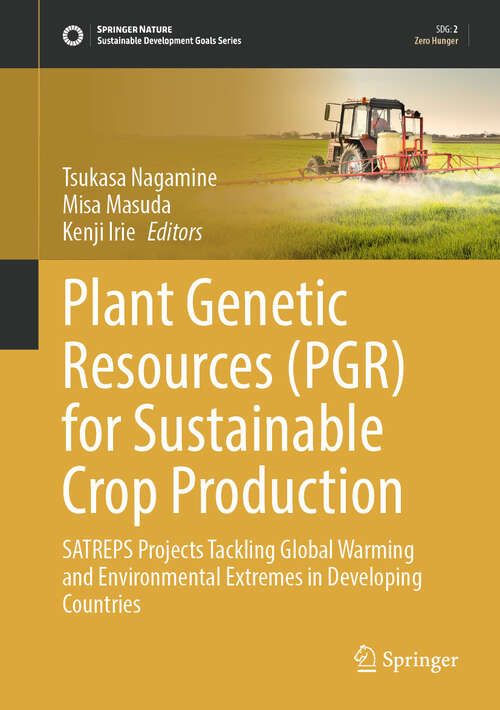
Plant Genetic Resources: SATREPS Projects Tackling Global Warming and Environmental Extremes in Developing Countries (Sustainable Development Goals Series)
Sciences et technologies
Audio avec voix de synthèse, Braille automatisé
Résumé
This book illuminates the essential role of plant genetic resources (PGR) in tackling global challenges such as climate change, desertification, and salinization of agricultural land. The SATREPS program, a collaboration between the Japan Science and Technology Agency and the Japan… International Cooperation Agency, has yielded several scientific findings and new agricultural technologies for over fifteen years. The use of plant genetic resources is a pivotal focus of SATREPS. This volume presents groundbreaking research and practical applications that enhance sustainable crop production in developing countries. Chapters explore topics like enhancing rice yields in Madagascar with minimal fertilizer use, developing nitrogen-efficient wheat systems in the Indo-Gangetic Plains, and combating climate change with resilient crops. Readers will discover diverse perspectives on the genetic improvement of staple and underutilized crops, including rice, wheat, tomato, quinoa, forage crops, cassava, banana, and rubber. The book demonstrates how PGR can be leveraged to overcome extreme environmental challenges and improve agricultural productivity, addressing SDG 2 while promoting safe, nutrition-rich food and sustainable agriculture practices worldwide. This book is essential for researchers in agricultural sciences, agronomy, breeding, plant pathology, soil science, climate change adaptation, and crop production on marginal lands. It also serves as a valuable resource for the professional staff of agricultural research stations and researchers in private companies. Readers will gain insights into sustainable agriculture practices that contribute to global food security, insights that may also enhance agricultural production in developed countries. The research and development presented here may help eliminate nutritional deficiencies and foster global agricultural sustainability.